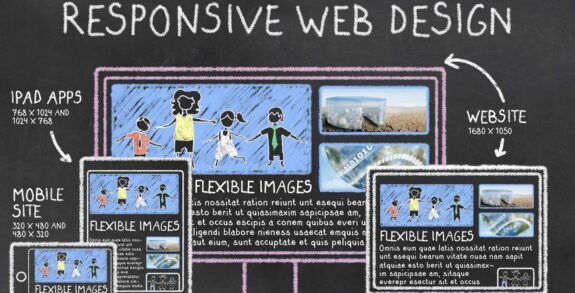Why would you need B2B Website Development?

Why would you need B2B Website Development? If you already have an existing business to consumer site or are planning on launching a new site, is there really much difference or benefit to using a B2B model? That is a question that pops up quite regularly in website design and is worthy of a discussion which we will undertake today.
What is a B2B Website?
It can be difficult to keep up with all of the acronyms in the world so we can forgive those who are not aware of exactly what B2B is. It stands for business-to-business and the basic definition is when you exchange services, products, or information from one business to another. This is different from B2C which is business-to-consumer.
Amazon or Target are both examples of a B2C business while a Cisco, Oracle or IBM are examples of B2B businesses that work directly with other business entities.
So following that line of thought, a B2B Website has a target audience of other businesses versus individual consumers. While there are many common aspects between both types of websites, there are also a number of important differences.
Key differences between B2B and B2C Websites
There are key differences between how you approach website design when looking at business-to-business compared to business-to-consumer, some of which relates to the different marketing styles or strategies between the two:
- Establish Credibility – One of the most important aspects of a B2B website design is to establish the creditability of the business. If your goal is to be an industry leader then you need a website that reflects that. Your site needs to showcase your professionalism and authority which then helps earn the trust of customers and potential customers.
- Understanding Motivations – We talk a lot about knowing your target audience for B2C websites as your design and marketing should be tailored to resonate with a specific audience. B2B is a little different in that motivations are the most important aspect about your customers because they are looking for a very clear benefit that is relevant to their needs within their industry. There is less of an emotional concern and more of a logical one made which needs to be considered when creating a site that will appeal to them.
- Site Organization and Navigation – Generally B2B sites have more information than a B2C site especially as you scale up in size. There are product specs, assurance programs, news, regulatory information, reviews, product standards and the like which all need to be searchable, well organized and easily found.
- Relationship Nurturing – While your websites should employ strong calls-to-action (CTAs), typically a B2B relationship takes longer to develop. As it does take time to build this relationship, there is less need to ‘go for the kill’ quickly on conversions or apply less pressure to make an immediate decision.
- Content Creation – How you develop content is important to nurturing and also needs to speak to different people within a business. You generally need a wide array of content from article and blog posts to webinars and white papers or possibly buying guides and case studies. This content needs to showcase how effective the products are, for example, or how problems get solved because of your services and they are better than the competition. It also needs to speak to both the people who will use or work with your products and speak to those who ultimately make the purchasing decision. Often these are not the same people.
Best Practices for a B2B Website?
- Branding – Branding is an important aspect of any website and especially a B2B site if you want to me memorable. While there is less of an emotional component compared to B2C sales, you are still dealing with people and therefore some level of emotion is still in play. Buyers are still influenced by their initial first impression which means your site should be well branded and provide a strong, positive impression with the impactful, engaging and interesting design that is used.
- Clear Value Proposition – One of the most important aspects of your site is the ability to clearly define the value of what you are offering and how what you have to offer meets needs and exceeds what the competition provides.
- Utilize Automation – Automation can greatly increase what you can accomplish. From marketing automation for email and your website to lead generation and lead capture there is a lot that your website should be doing for you to help enhance your business.
- Incorporation Premium Content – Why buy the cow when you can get the milk for free? That is why your premium content needs to be gated in some manner so that prospective clients need to at least fill out an information form before they can access it. Remember, sometimes they need to give something to get something and in this case that should be more in-depth contact and/or business information to help you refine a future sales pitch.
- Mobile Friendly – This is an absolute must for any type of online business. You must have a mobile friendly site to cater to those people who rely on mobile devices for research and information gathering.
- Focus on Speed – This is also a best practice for a B2C site; web performance. One or two seconds can end up being the difference in a customer staying or leaving your site. There is a very low tolerance for poor performance as that might be a reflection of how you run the rest of your business.
- Continue to Evolve – B2B is one area where remaining static is not a good idea. If your business and its website aren’t continuing to improve and evolve then you won’t be able to build and advance your business conversions.
The bottom line is that you need B2B website development if your business sells to other businesses. There are too many differences between the needs of a B2C website and a B2B site to simply use any web developer if you expect to have a finished product that will allow you to successfully compete in competitive markets. You need someone that understands the nuances and needs of B2B businesses with successful site designs already part of their portfolio.
Be sure to check back every Monday, Wednesday and Friday for great new Lounge Lizard blog articles.





